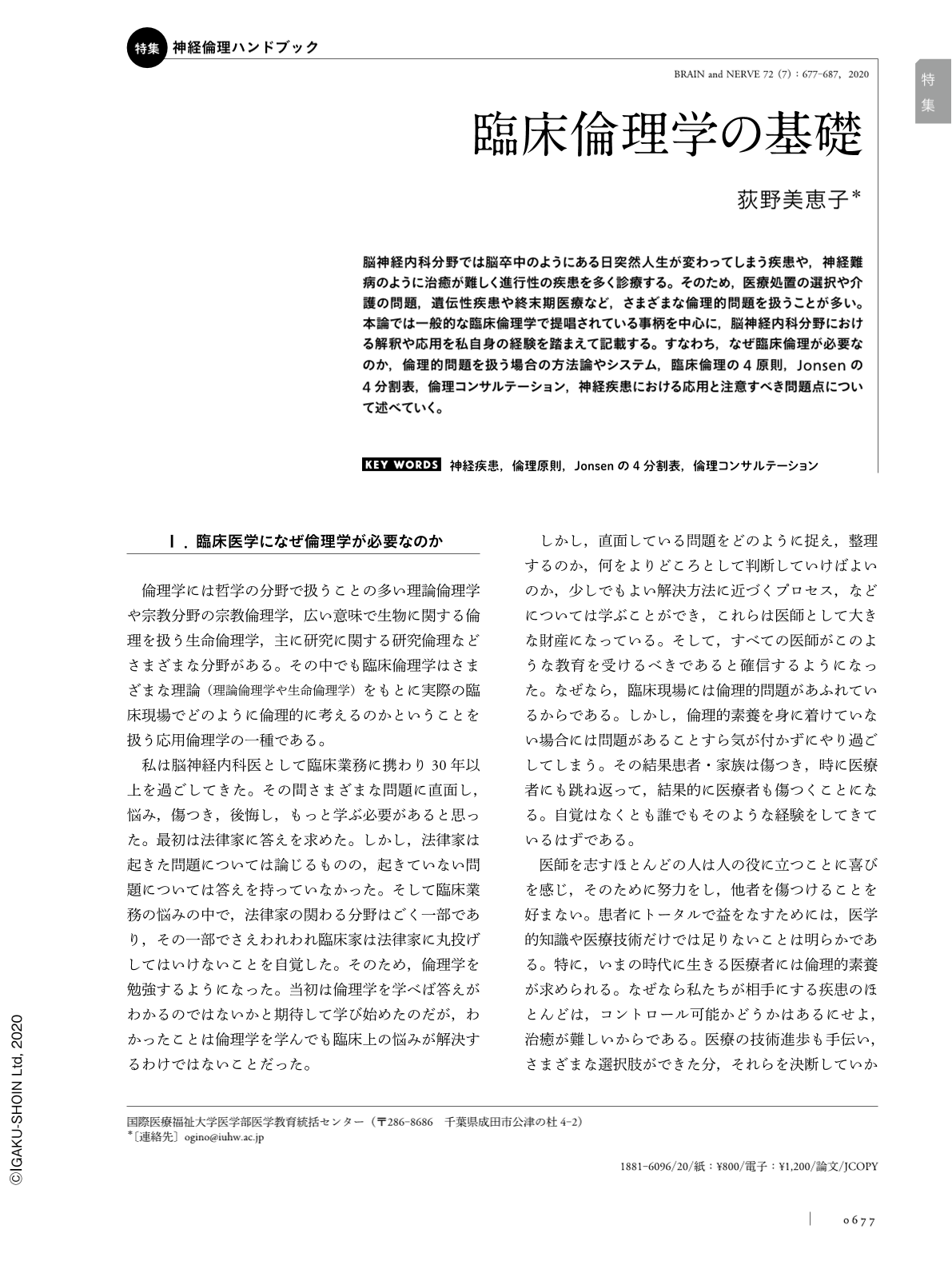Japanese
English
- 有料閲覧
- Abstract 文献概要
- 1ページ目 Look Inside
- 参考文献 Reference
脳神経内科分野では脳卒中のようにある日突然人生が変わってしまう疾患や,神経難病のように治癒が難しく進行性の疾患を多く診療する。そのため,医療処置の選択や介護の問題,遺伝性疾患や終末期医療など,さまざまな倫理的問題を扱うことが多い。本論では一般的な臨床倫理学で提唱されている事柄を中心に,脳神経内科分野における解釈や応用を私自身の経験を踏まえて記載する。すなわち,なぜ臨床倫理が必要なのか,倫理的問題を扱う場合の方法論やシステム,臨床倫理の4原則,Jonsenの4分割表,倫理コンサルテーション,神経疾患における応用と注意すべき問題点について述べていく。
Abstract
Neurologists encounter patients who develop diseases that suddenly change their life one day, such as stroke, and diseases that are difficult to cure and progressive, such as intractable neurological diseases. There are many types of ethical issues, including the choice of medical intervention, caregiver conflict, genetic disease issues, end-of-life issues, etc. In this article, I will describe the matters advocated in general clinical ethics and discuss the interpretation and application in the field of neurology based on my own experience. The issue is why clinical ethics is necessary, methodologies and systems for dealing with ethical issues, four principles of clinical ethics, Jonsen's four contingency table, ethical consultation, application in neurological diseases, and issues to be noted.

Copyright © 2020, Igaku-Shoin Ltd. All rights reserved.


